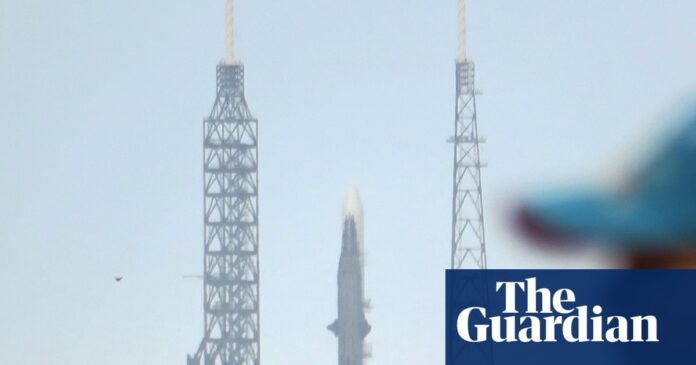Blue Origin, the aerospace company founded by Amazon’s Jeff Bezos, has been forced to delay the second launch of its powerful New Glenn rocket due to unfavorable weather in Cape Canaveral, Florida. This setback comes amidst a fierce rivalry with Elon Musk’s SpaceX and increasing pressure from the US government to accelerate lunar exploration.
Originally scheduled for Sunday, the launch was thwarted by both rain and technical issues on the ground. As the launch window of 88 minutes neared its close, thick cumulus cloud cover sealed the deal, leaving Blue Origin no choice but to postpone the mission. The company is now targeting a new launch attempt between 2:50 p.m. and 4:17 p.m. Eastern Standard Time on Wednesday, coordinating with the Federal Aviation Administration (FAA).
The high stakes of this launch extend beyond mere schedule adjustments. Carrying NASA’s Escapade twin spacecraft, New Glenn will embark on a crucial mission to Mars. The objective is to analyze the planet’s climate history – a step towards ultimately understanding its potential for human habitation.
Booster Recovery: A Key Test
The launch also represents a pivotal test of Blue Origin’s ability to recover the rocket’s first-stage booster, a maneuver essential to lowering the cost of spaceflight. SpaceX currently holds this distinction as the only company to successfully achieve consistent booster recovery.
During New Glenn’s inaugural flight in January, while its payload successfully reached orbit and performed planned tests, the first-stage booster failed to land precisely on a designated platform in the Atlantic Ocean during its descent. This lost booster highlights the technical hurdles still facing Blue Origin in this area.
A Heated Rivalry
The intense competition between Musk’s SpaceX and Bezos’ Blue Origin has intensified recently, spurred by NASA’s decision to open bids for its upcoming lunar mission. The space agency cited concerns about SpaceX falling behind schedule, prompting a competitive push from both companies.
This rivalry plays out against the backdrop of heightened pressure from the Trump administration for accelerated progress in lunar missions, aimed at maintaining American leadership in space exploration while rivaling China’s own ambitious plans. Mason Peck, an aeronautics professor at Cornell University and former NASA chief technologist, views this intensifying competition positively: “More launches mean more ideas in space,” he notes. “It can’t be a bad thing to have Blue Origin, even trailing behind.”
The successful recovery of New Glenn’s first stage would represent a significant milestone for Blue Origin, strengthening its position in the burgeoning commercial space market and driving further innovation in the race towards lunar exploration and beyond.

































